Bioscience Innovation and Enterprise MSc
Key course information
For key information, including tuition fees, entry requirements, start dates and more, view the UCL Graduate Prospectus page for the Bioscience Innovation and Enterprise MSc.
Why study the Bioscience Innovation and Enterprise MSc at UCL?
- In biomedical and health sciences, UCL is 1st in Europe for papers in the top 5% of their field by citation rate (2015-2018, CWTS Leiden Ranking 2020).
- UCL is ranked 8th in the world (QS 2023).
- The UCL Institute of Ophthalmology is ranked the best place in the world to study ophthalmology (CWUR Rankings by Subject 2017).
- UCL hosts more UKRI Future Leader Fellowships than any other UK university, with three academics at the UCL Institute of Ophthalmology receiving the prestigious fellowships over the last three years.
- Our longstanding partnership with Moorfields Eye Hospital represents the largest co-located site for eye research, education and care in the world.
- As a student you will have access to innovative facilities, connection to a growing network of peers, and support from highly experienced and professional tutors.
- Interacting with London and the wider ecosystem
We encourage a self-starter attitude to exploring the science-business interface in London, and in engaging with the entrepreneurial communities in and around UCL. There are many events, training workshops, competitions, seminars and more where you will have the chance to extend your learning. Students are encouraged to work in a collaborative manner, with each other, and with the teaching teams.
Our goal is to build from this course a supported alumni community who connect back into the course once they have left. As an alumni MSc Bioscience Entrepreneurship, you will be invited to share your experiences, join the current cohort for events, and to build the space of science-business boundary spanners as a community within UCL.
- UCL Innovation & Enterprise
UCL has a stand-alone division called UCL Innovation & Enterprise that supports entrepreneurship throughout the UCL student community. This division runs virtual and in-person activities such as:
- Extracurricular events, training and competitions
- Network-building across the UCL faculties of management, engineering, brain sciences, life science to meet and work with like-minded innovators and entrepreneurial students
Learn more by following UCL Innovation & Enterprise on Twitter @UCLEnterprise.
- UCL Business (UCLB)
UCL B is the university’s technology transfer division that manages all the commercialisation activity that UCL does with business. This includes patenting, creating licences, spinouts and academic consultancy. It is a wholly-owned company within UCL, and is ranked as one of the most powerful technology transfer offices in Europe.
UCL has commercialised numerous game-changing innovations in recent years, such as Google Deepmind which originated from research at UCL, and innovative pandemic solutions in collaboration with the nearby hospital UCLH.
Prospective students who are interested in UCL’s innovation output can search for “Ophthalmology” within UCLB to get a picture of the innovation activity within the home institute for this degree, the Institute of Ophthalmology. As a student on this MSc, you will use UCLB as a source of innovations to work with in your teaching, and to write assignments on some of these emerging new venture creation projects.
Course structure
The UCL Bioscience Innovation and Enterprise MSc is run by the UCL Institute of Ophthalmology, but you will be take a number of modules from the UCL School of Management and UCL School of Pharmacy. You’ll learn from each of these world-leading departments about how science knowledge can be turned into new social and economic value, to make a real-world difference. This is one of the first degrees of its kind worldwide to offer business education specifically for scientists.
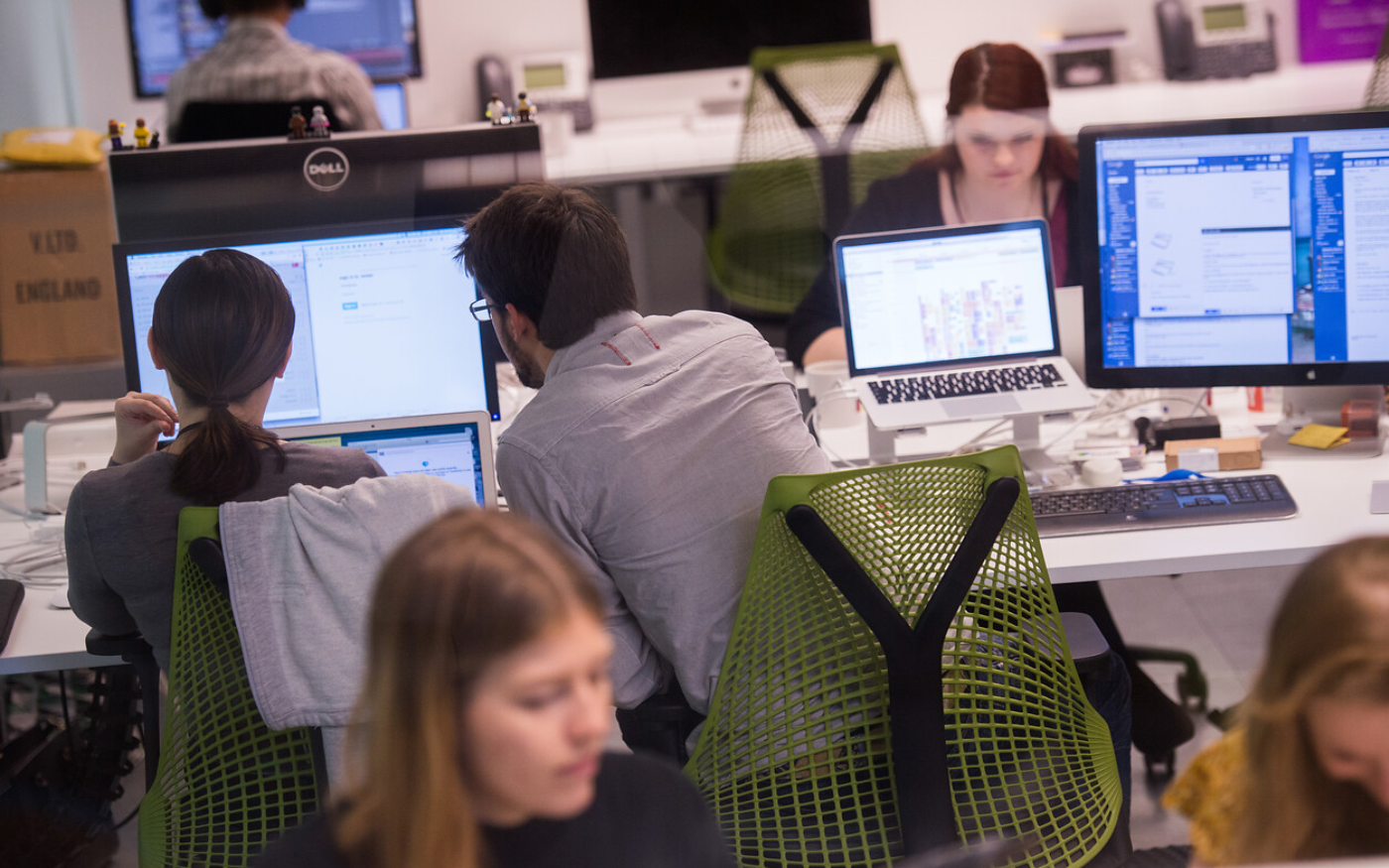
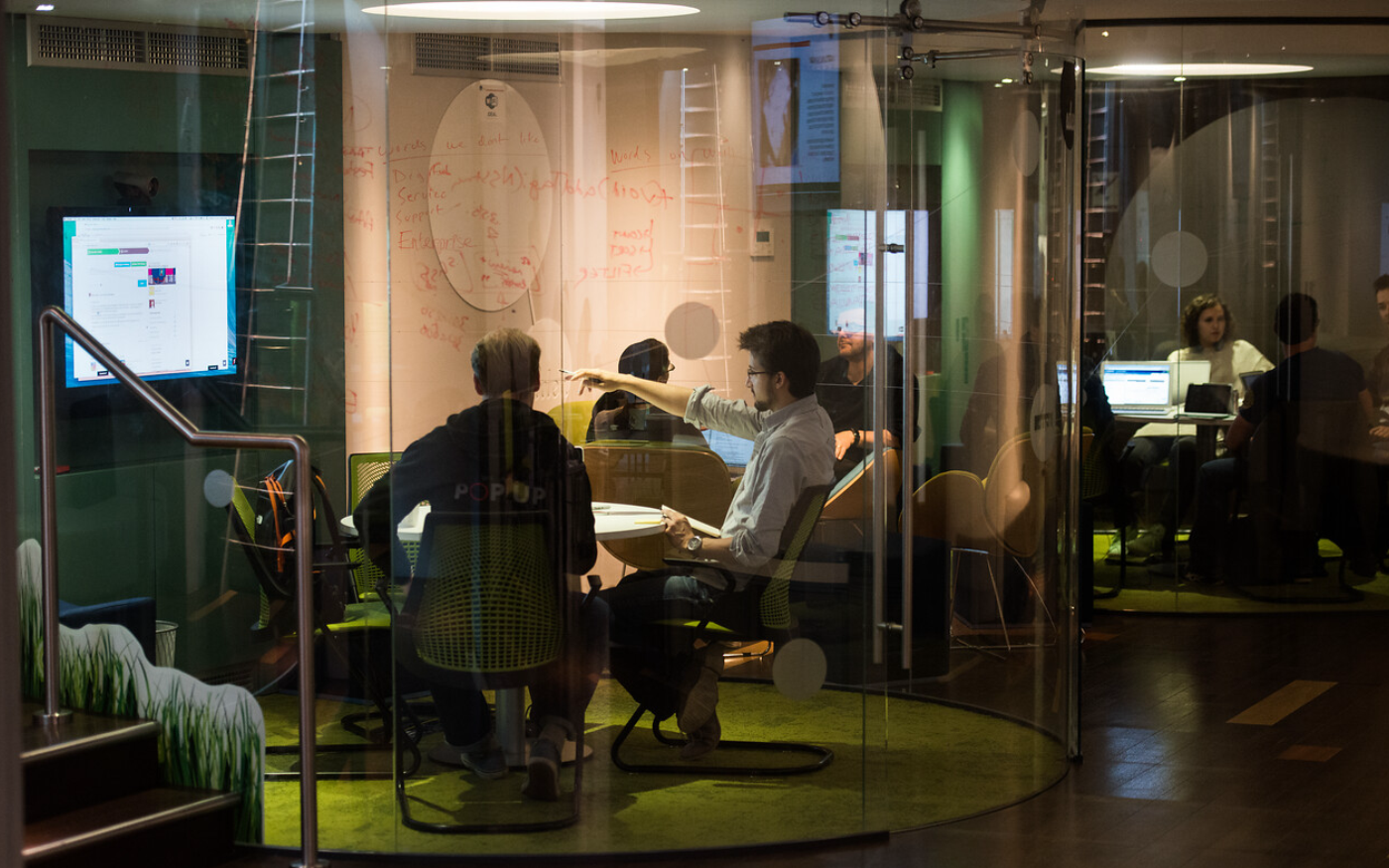
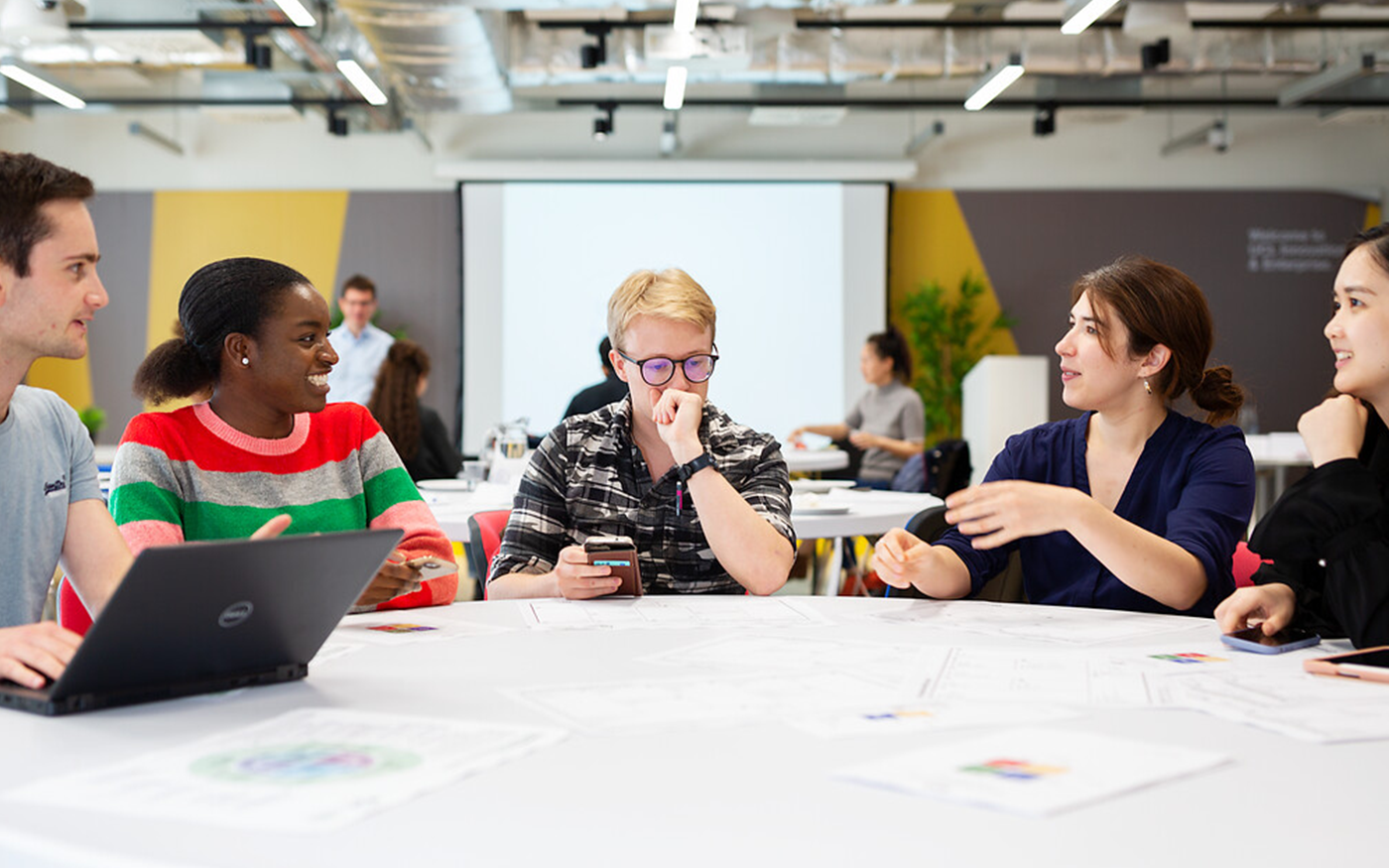
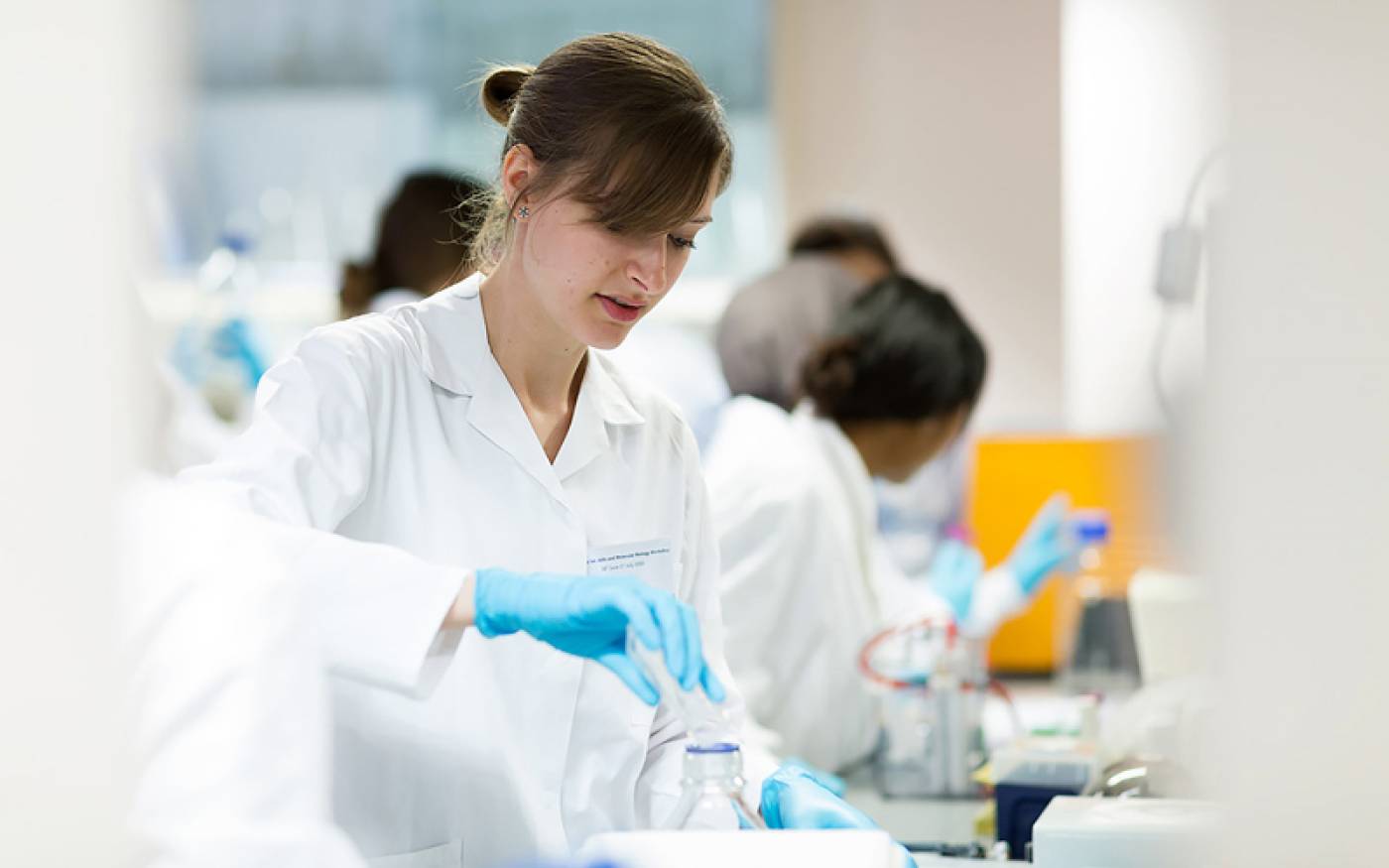
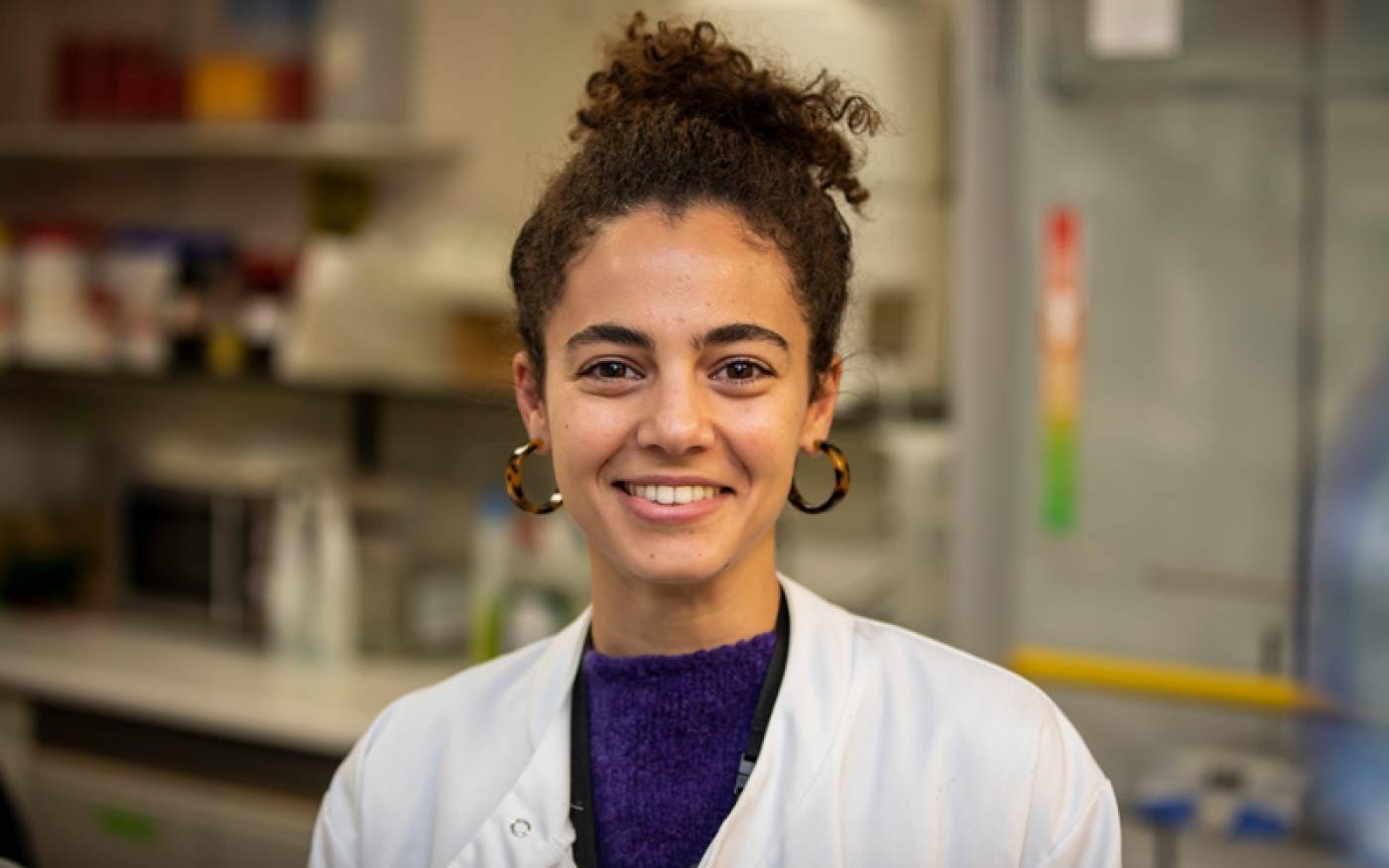

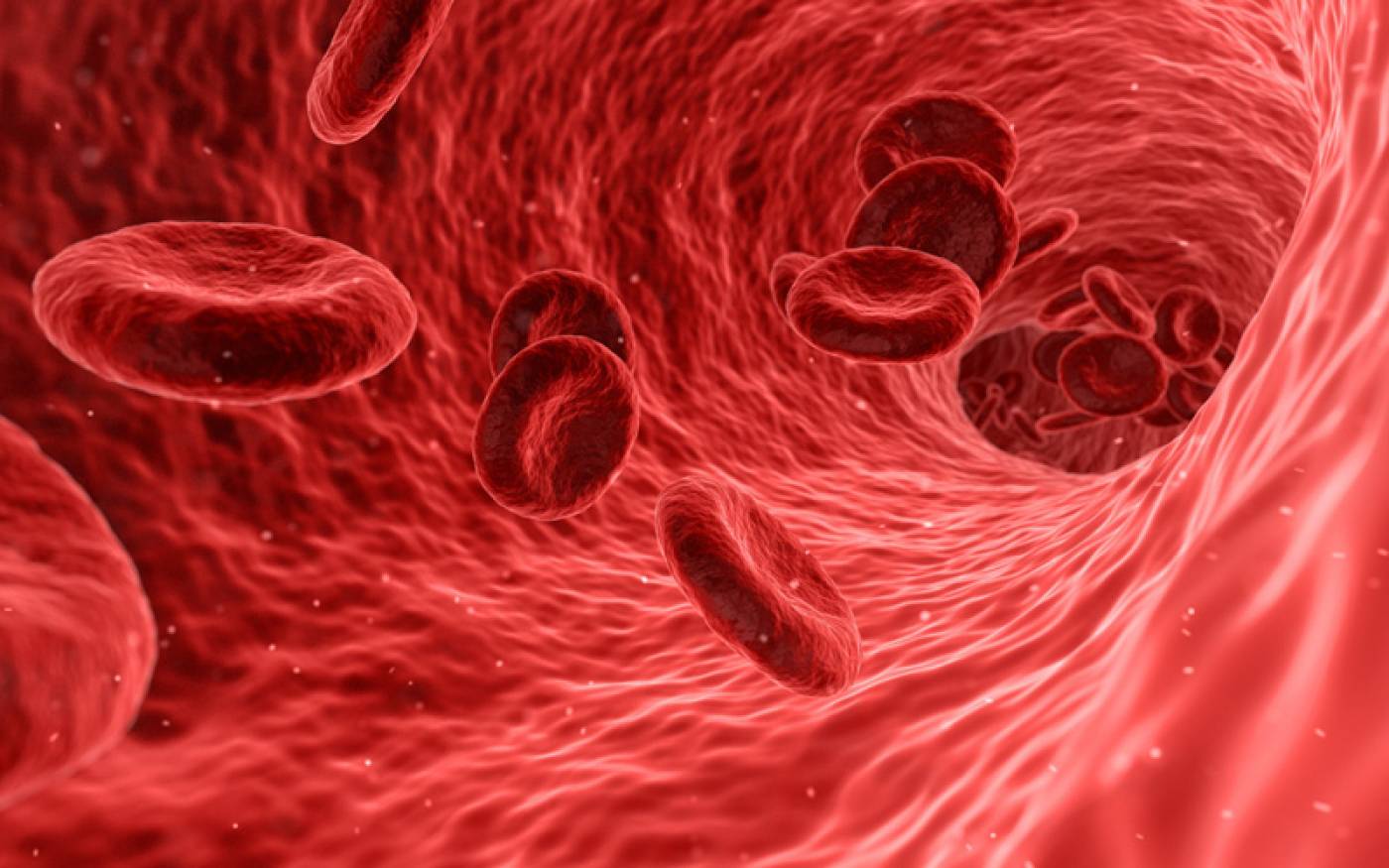
Turning science into useful innovation means that scientists need to understand the language of business, such that they can interrogate the science for potential value and translate that potential into the valuation frameworks used by industry and global institutions. Bioscience innovation is often a long journey. It needs patient funding, from a wide spectrum of public sector and commercial funders. It often gets implemented in dynamic market sectors, complex health systems and under strong regulatory controls.
From the start you will be taught by translational scientists and business people who have successfully navigated the science-business interface to create new value from ideas. UCL’s Institute of Ophthalmology, the home department for this degree, is linked to Moorfields Eye Hospital. This is ranked as the leading university-research collaboration in a specialty area.
Eye scientists study everything from cell biology, genetics, digital health, artificial intelligence, imaging, through to global health and are renown for their innovation and translational expertise. UCL School of Management is a fast-growing business school department with specialties in innovation, entrepreneurship and analytics. UCL School of Pharmacy has a long-established reputation of industry partnering and spinouts.
You’ll find yourself amongst like-minded students with a science background who share a purpose to drive innovation into successful enterprise. Our students come from a variety of countries, from many different scientific and medical backgrounds, but they all share ideals of how business education can empower scientists.
Using UCL’s network and reputation is also a starting point to access London’s entrepreneurial bioscience ecosystem. UCL Innovation & Enterprise runs events, incubation facilities and training programmes for emerging entrepreneurs. The university is closely connected to the Crick Institute, the clinical excellence of Moorfields Eye Hospital, the Wellcome Trust and MedCity in London.
As a summary, this course is suitable for anyone who:
- Wishes to explore the science-business interface for ideas and inspiration
- Wants to pivot to working with science in a business setting such as in investment or consultancy
- Feels they would like to be a new venture creator, and lead their own bioscience-based enterprise at some point in the future
Additional notes
- Some students take this as a part-time course over two years, such that they can continue working. These students can work on a dissertation or other investigative assignment that is related to their work.
- This course does not assume any knowledge of business or management prior to starting the MSc. It takes a steep learning curve, and covers in depth the areas that are most relevant to bioscience innovation and enterprise.
Course overview
- Teaching location
This course is based for the first term, which runs late September to December, in the Institute of Ophthalmology, for the compulsory science translational modules. The Institute is in the Shoreditch area of London. For the second term, you are based primarily at the UCL site in Bloomsbury, where you take one compulsory School of Management module and can choose other Management and Pharmacy modules from the options below. For the final term, you write a research-business dissertation project, that explores an area of science, technology or medicine and makes a business case for that innovation. Some students do this in collaboration with a company.
- Teaching methods
Our teaching methodologies include a variety of learning styles, for example the flipped learning approach and collaborative groupwork. You are expected as a student on this course, to contribute to our co-creative learning environment, to pitch ideas, to discuss and engage with the material. Your work will feature written and ‘live’ assessments, such as through an investor pitch deck, summarising science for different audiences, finding evidence to validate conceptual ideas, and working in groups, including with students from other disciplines across UCL.
This course is in its third year. We have in the past offered some hybrid (online and offline) sessions, but the expectation is that you will attend all classes face-to-face in 2023-2024.
- Your employability and career destinations
This is a new course. The 2023-24 cohort will be the fourth year of this course. Students from the first two years have gone on to careers in management consultancy, venture capital, research translation, start-ups and spinouts, policy, PhD programmes and more. Science has achieved new prominence since the pandemic. Our boundary-spanning innovative students have many options in the UK and globally for purposeful careers.
- Student diversity
- Our cohort is made up of approximately 40 students
- Around 25% are from the UK, with 75% from the EU and the rest of the world
- Three-quarters are new graduates or intercalating medical students; others have 3-5 years + work experience, often in a science based environment
- Consideration can be given in application to students who have some entrepreneurial experience, gained either in a university setting or in an enterprise
- Undergraduate degree backgrounds include biochemistry, biomedical sciences, medicine, genetics, bioinformatics, biology, agricultural sciences and many others
Our mix of students, who have a common background in science, and a common purpose in exploring the business of science, is a powerful asset in this course. Drawing together from this range of perspectives and experience to examine the science-business interface builds a very positive teaching environment. Our teaching staff are exemplary boundary-spanners themselves, and many are world-leading researchers. Our aim is to offer a comprehensive mix of skills, knowledge and mindsets to empower a new generation of scientists to make a difference in the world.
- Learning outcomes
On completion of this course, you will have:
- An understanding of how bioscience intersects with business
- Knowledge, skills and mindset that support entrepreneurial activity
- A bespoke business education that focuses on scientific innovation
- Exemplary boundary-spanning communication and leadership skills
- Understanding of the ethical, regulatory and legal constraints around research in businesses based on living entities
- Opportunity recognition skills to identify potential life science opportunity
- Awareness of how new venture creation works in organisations, the priorities, practices and purpose behind the drivers for organisational innovation
Application requirements and next steps
This course is suitable for a wide variety of students with a science background who wish to gain a bespoke business school-type education focused on innovation. It is suitable for aspiring entrepreneurs, those who wish to work in translational roles or with innovative science, students who wish to work in corporate environments that work with life sciences, and many more.
The requirement is for a bioscience degree at 2:1 or equivalent. Intercalating medical students are eligible to apply. Others with work experience or entrepreneurial experience can include that in their application. Some applicants can demonstrate interest in pursuit of a career involving innovation, valuation of science, social purpose, commercialisation interest or other activity at the science-business interface.
Your course team
Learn more about this course with short introductions to some of our modules below.
What our students say

- Alex Vassallo, Bioscience Entrepreneurship MSc
Compulsory and optional modules
Students in this MSc programme will gain a comprehensive understanding of the bioscience startup ecosystem, including asset valuation, intellectual property, and investment strategies. They will explore how to leverage emerging technologies to drive innovation and achieve business goals in life sciences. The curriculum integrates bioscience with business management, covering essential topics such as regulation, stakeholder communication, and the journey from innovation to market implementation.
Additionally, students will delve into digital health and AI, learning about telemedicine, electronic health records, and the ethical implications of data collection. They will also examine the development and commercialization of digital technologies in the bio-industry. The programme includes a substantial research project, allowing students to apply their knowledge in real-world scenarios, and offers modules on clinical research practices or the biological mechanisms of diseases and their treatments. This holistic approach equips students with the skills and knowledge necessary to excel in the dynamic field of bioscience.
The modules taught on the programme are dynamic and subject to change to ensure the course content stays abreast of latest developments in the field.
Click here to find out more about the latest compulsory and optional modules.
 Close
Close


